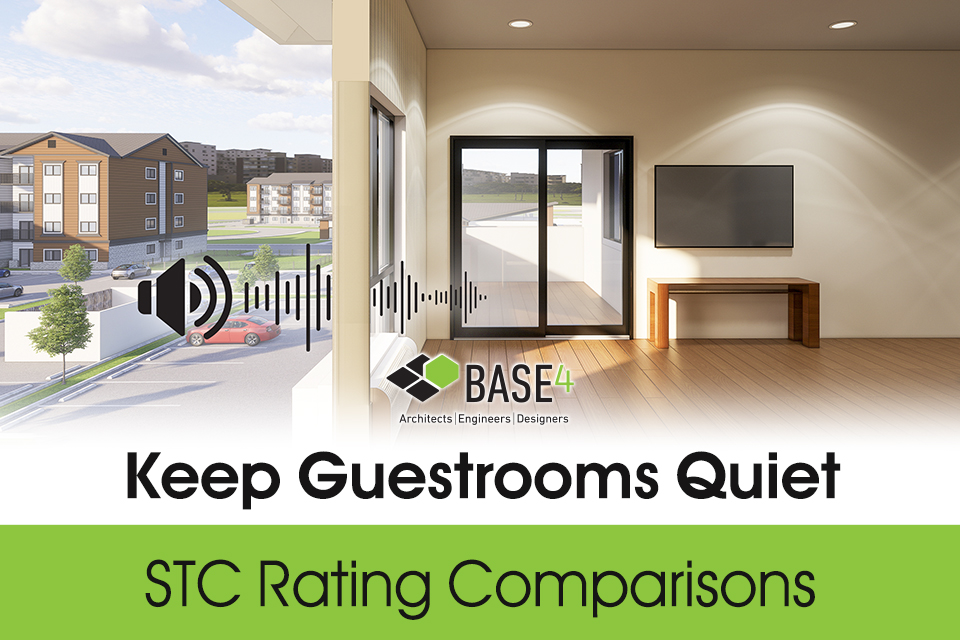In the competitive hospitality industry, guest comfort is key. Superior sound control sets your property apart, ensuring a peaceful stay. Effective soundproofing requires a careful blend of building materials, designs, and methods with Sound Transmission Class (STC) being a critical factor. Prioritizing high STC ratings is essential for superior sound insulation. Discover how to enhance guest comfort and elevate your property’s value with top-tier sound control strategies.
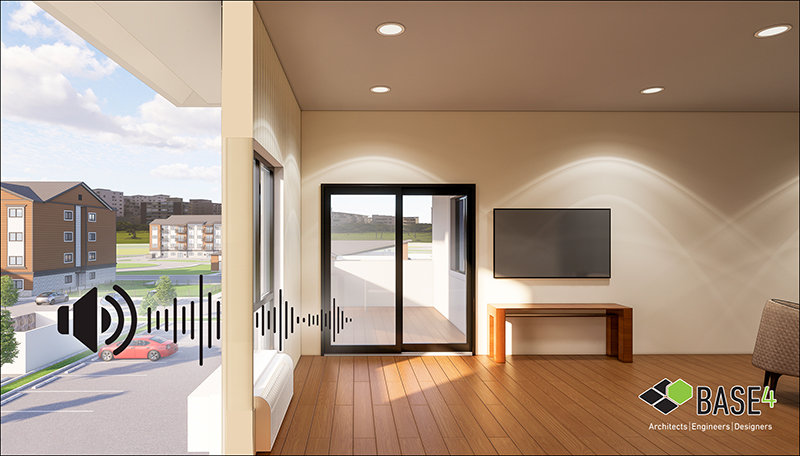
Elements Affecting Wall STC Performance:
Several items affect a wall’s STC performance, and below we’ll take a look at some of the most common:
Construction Material
We’ll take a look at three of the most common building materials for wall assemblies; wood, cold-formed steel and masonry to give a baseline for performance between different materials.
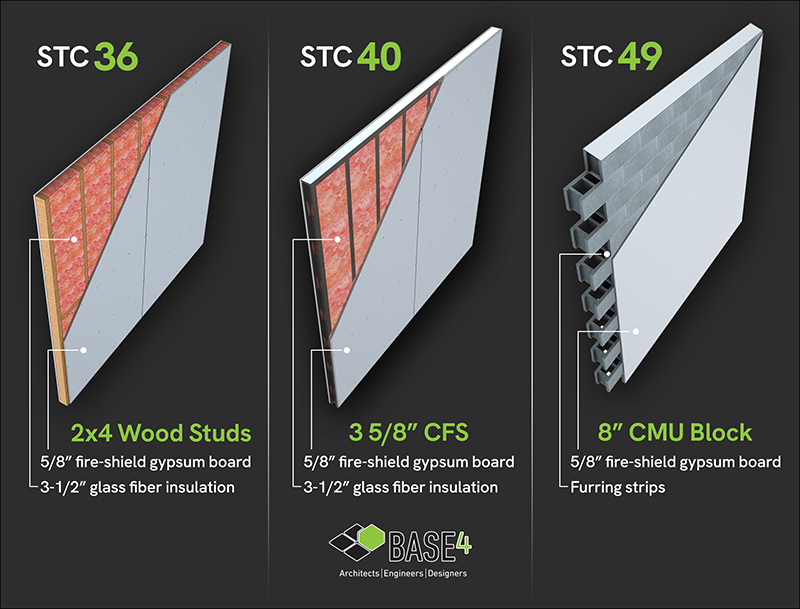
Drywall Layers
Let’s look at a common wood wall and see how drywall increases performance.
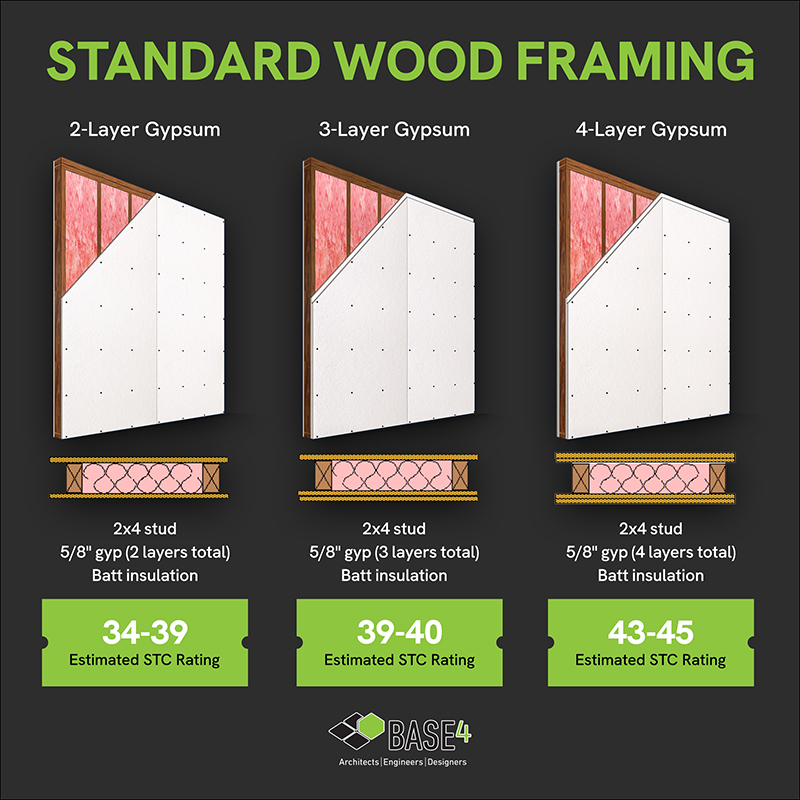
- Multiple drywall layers plus fiberglass insulation make great sound absorbers and remains the simplest and most cost-effective solution for achieving basic STC requirements.
Resilient Channel
Another common way to increase STC performance is to add resilient channel, also called RC or Z channel. Notice how this strategy can greatly increase the wall’s STC rating.
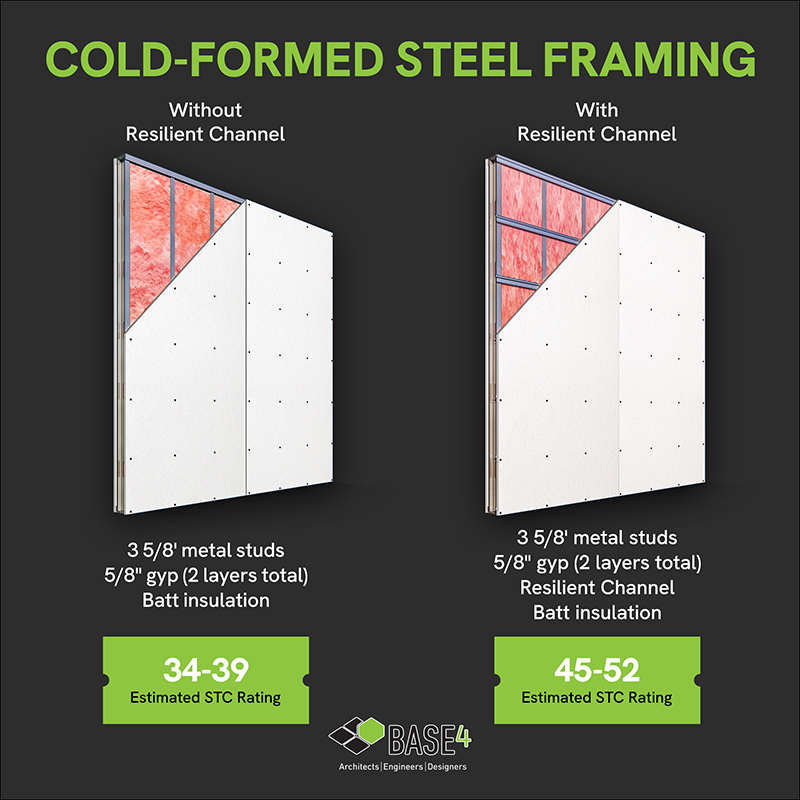
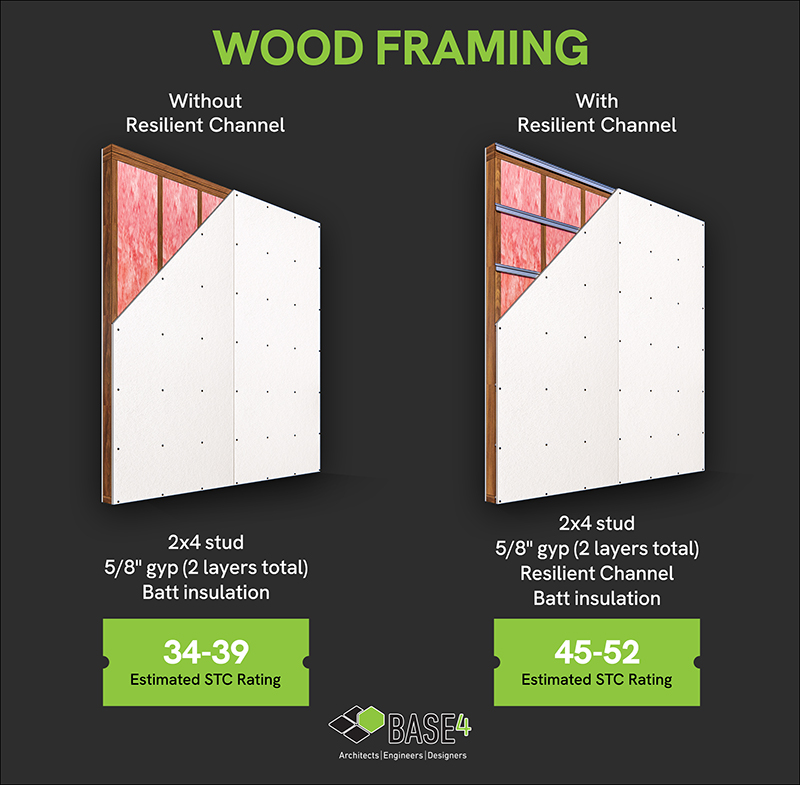
Adding Air Space
Disrupting or disconnecting the sound transmission path is the most effective way to provide a higher STC rating. Enlarging air spaces by isolating them within a partition can also increase STC performance. The more the air gap separates the materials, the better.
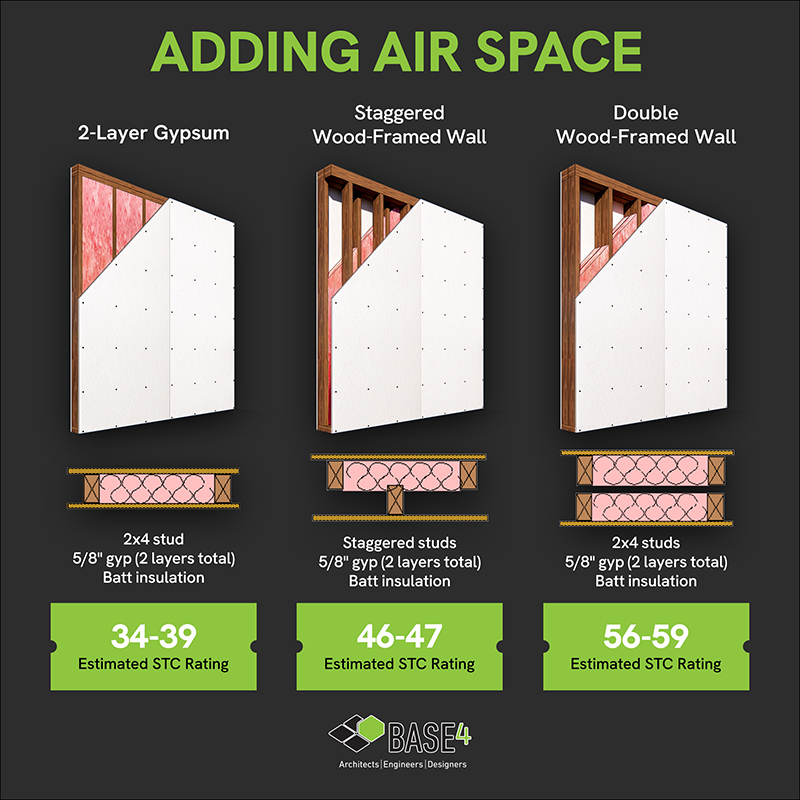
Soundproofing Floor/Ceiling Assemblies:
It’s essential to isolate sound. A floor system can develop gaps or cracks, providing a flanking path for sound to travel between building levels. Choosing high-Noise Reduction Coefficient (NRC) ceiling panels for your ceiling assemblies will help absorb a significant amount of the sound generated within open spaces.
- Each structural floor has a basic IIC. Then, the designer builds that IIC rating up to comply with the sound requirements by adding a membrane or choosing a floor finish to boost the rating.
- Be mindful of the “tested” IIC ratings on products; these are often tested under specific conditions that may not apply to your project. Always ask for the IIC delta (ΔIIC) number that will provide the rating of the floor finish itself.
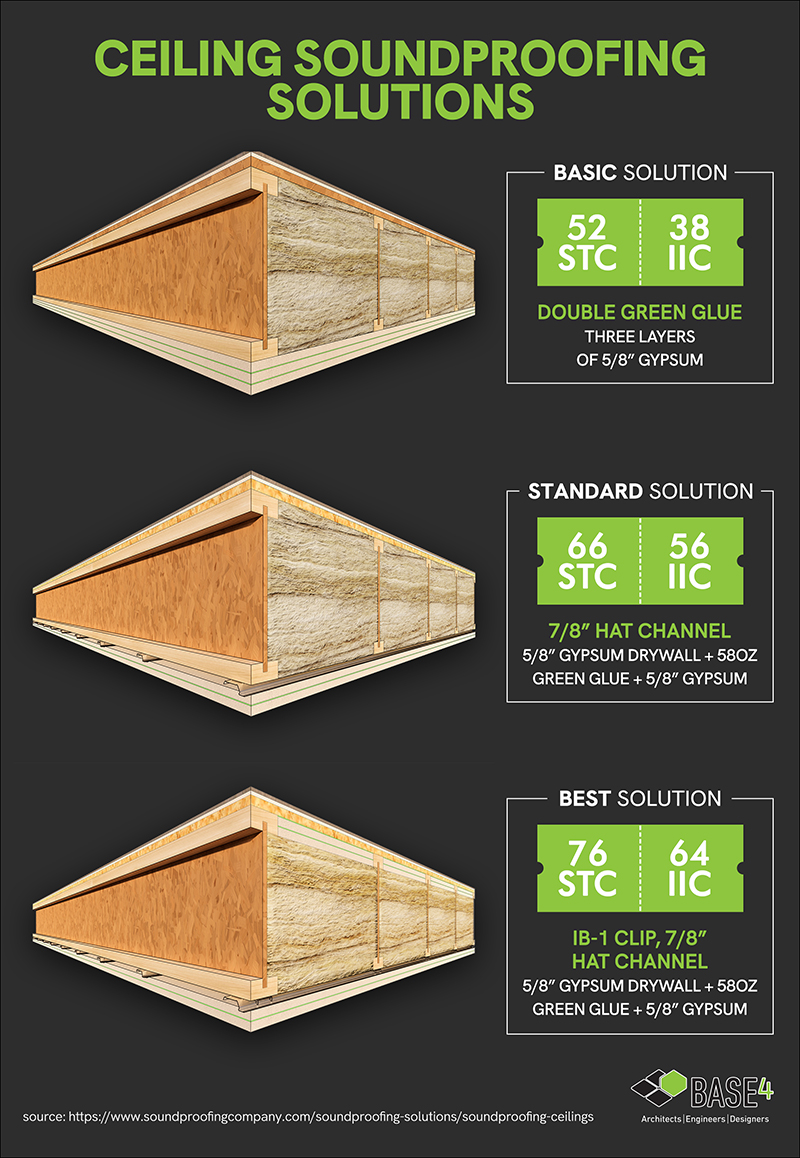
BASE4: Your Partner in Achieving Superior Noise Control!
At BASE4, we understand the critical role that noise control plays in the success of hotel and multifamily developments. Our team of experts provides cutting-edge noise control strategies tailored to meet your specific project needs. With our comprehensive in-house MEP (Mechanical, Electrical, and Plumbing) and architectural services, we ensure that every aspect of your project is designed and executed to achieve the highest possible STC ratings.
- With BASE4, you get more than just noise control. You get a partner dedicated to enhancing your project’s overall quality and success.
Our commitment to excellence and client satisfaction means we work tirelessly to deliver results that exceed your expectations.

Thank you,
Blair Hildahl
BASE4 Principal
608.304.5228
BlairH@base-4.com
![]()

